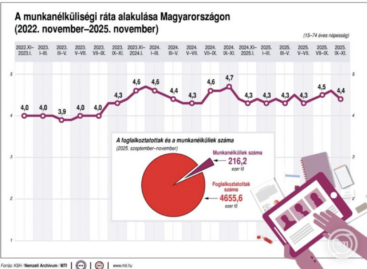British Chambers of Commerce: according to almost two-thirds of British companies, trade with the EU is more difficult
Almost two-thirds of British companies still have difficulty adapting to the terms of the trade and cooperation agreement (TCA) signed with the European Union just three years ago, according to the large-scale anniversary survey presented by the British Chambers of Commerce (BCC) on Wednesday.

Great Britain left the EU on January 31, 2020. On the day of his departure, an 11-month transition period began with the aim of having time to agree on the terms of further bilateral relations, above all on a free trade agreement.
After several months of negotiations, a 1,246-page collection of rules was finally created, on which the British government and the EU managed to reach an agreement almost at the last moment, on December 24, 2020.
Based on the agreement, neither tariffs nor quotas are imposed on the bilateral trade of goods between Great Britain and the European Union, if the goods comply with the requirements for proof of origin.
Related news
The number of employees in trade and public administration increased annually
🎧 Hallgasd a cikket: Lejátszás Szünet Folytatás Leállítás Nyelv: Auto…
Read more >Company Trend 2025 – domestic businesses under strong pressure, in a negative trend
🎧 Hallgasd a cikket: Lejátszás Szünet Folytatás Leállítás Nyelv: Auto…
Read more >Related news
Innovations, success stories and awards on the same stage
🎧 Hallgasd a cikket: Lejátszás Szünet Folytatás Leállítás Nyelv: Auto…
Read more >Farewell day at the 60th anniversary EuroShop trade fair
🎧 Hallgasd a cikket: Lejátszás Szünet Folytatás Leállítás Nyelv: Auto…
Read more >NAV: Women’s Day inspections begin
🎧 Hallgasd a cikket: Lejátszás Szünet Folytatás Leállítás Nyelv: Auto…
Read more >








